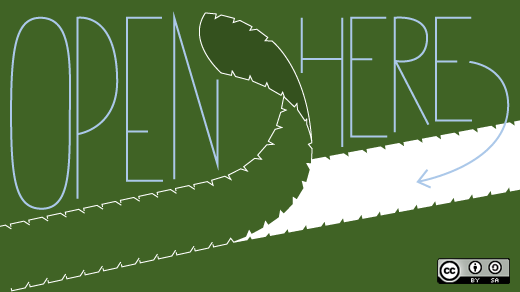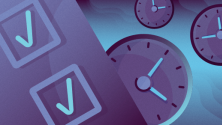My experience tells me there are a lot of people interested in trying open source, but they don't know where to start. And the perception that you have to write code to contribute to is a barrier to that curiosity. So, I've outlined 10 ways that anyone can get started with open source—no code writing involved.
I welcome your ideas and additions, there are without a doubt more than 10 ways—let's get started.
10 ways to start using open source
- Use open source for everyday productivity. Download and install a free web browser, email client, or office and productivity suite—no matter what platform you're on. This is one of the easiest ways to start using open source software. I recommend Firefox for web browsing and Thunderbird for email. Use Libre Office for word documents, spreadsheets, and presentations, and replace Microsoft Office for free! I call these the gateway apps, because once you start using these, you’ll be turned on to other open source tools (and won't want to go back).
- Join an open source project. I know that joining a project can be scary, but contributors from all experience levels are welcome. Open source communities use project managers, designers, writers, marketers, and many other types of skills to get their work done. If you’d like to introduce students to open source, here’s a great way to get started. You never know, getting involved and actively participating in an open source project could boost your resume and land you a job.
- Read a book about open source. Here are a few to look into: Open Advice, Coding Freedom, The Power of Open, or one of our eBooks.
- Learn how to create and nurture communities of contributors. Flip through the online book, The Open Source Way, and then share your new knowledge by starting a community or becoming a part of an existing one.
- Start using Creative Commons. Before you create your next work of art, photography, writing, or music, use copyleft instead of copyright. By using Creative Commons, you can share your work with the world. First, you’ll need to choose which license is right for you, then you may be interested in seeing how Creative Commons is used in different areas such as government, business, and journalism.
- Start exploring. Check out the OpenROV project and explore the ocean or a local lake. If you don’t want to get wet, put on a space suit and see what it’s like to explore Mars.
- DIY and create something. Tiny Linux boards, like Raspberry Pi, are doing some amazing things. Check out other creative hardware boards like Makey Makey or a variety of electronics from SparkFUN, If you’re into 3D printing, be sure to see how you can use Inkscape.
- Get creative. Replace PhotoShop with the GNU Image Manipulation Program (GIMP), InDesign with Scribus, or use other tools like MyPaint, Inskape, Audacity, and Blender. If any of these sound interesting, watch our seven-minute tour of open source creative tools. Then see what was big with design tools in 2012. Be sure to check out other tools like Dream Studio, TuxPaint, and KDEnlive for your creative needs.
- Learn to program. Notice I didn’t say "learn to write code." Scratch comes installed on some Raspberry Pi’s and is being used to teach kids how to program. I wish I had this when I was learning computer programming in college.
- Take a course. The OpenCourseWare movement, lead by MITOCW, is changing how people learn. Get started by watching this webcast on MIT OpenCourseWare. There is so much open source happening in the education field: Moodle and school management software for teachers and students are a couple of the many great resources.
Fact is, there are so many ways to get started with open source. Do you remember how you got started? Share your story about your first open source experience or how you introduced someone to open source.
This post has been translated into French. Merci FramaBlog.






8 Comments